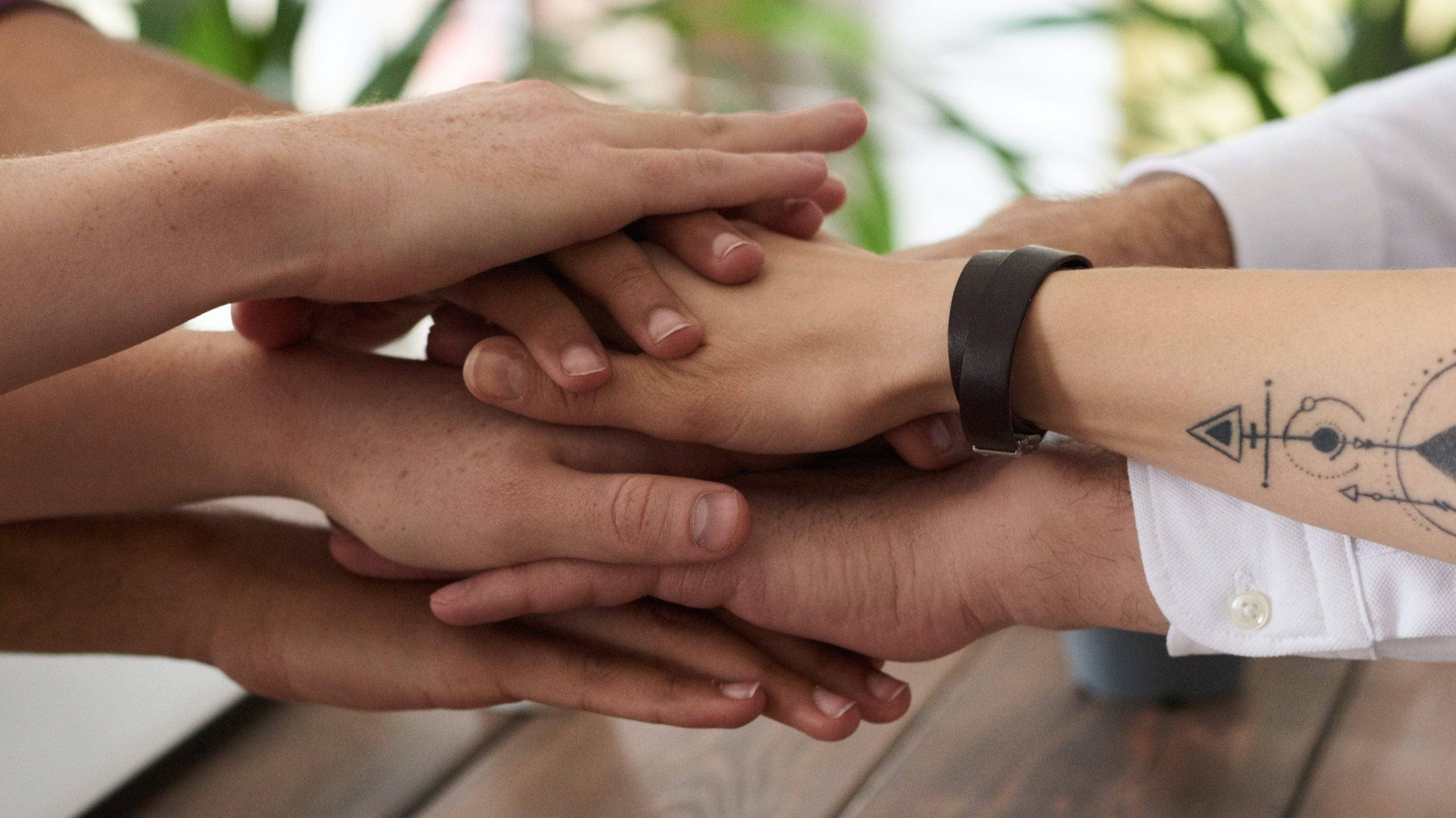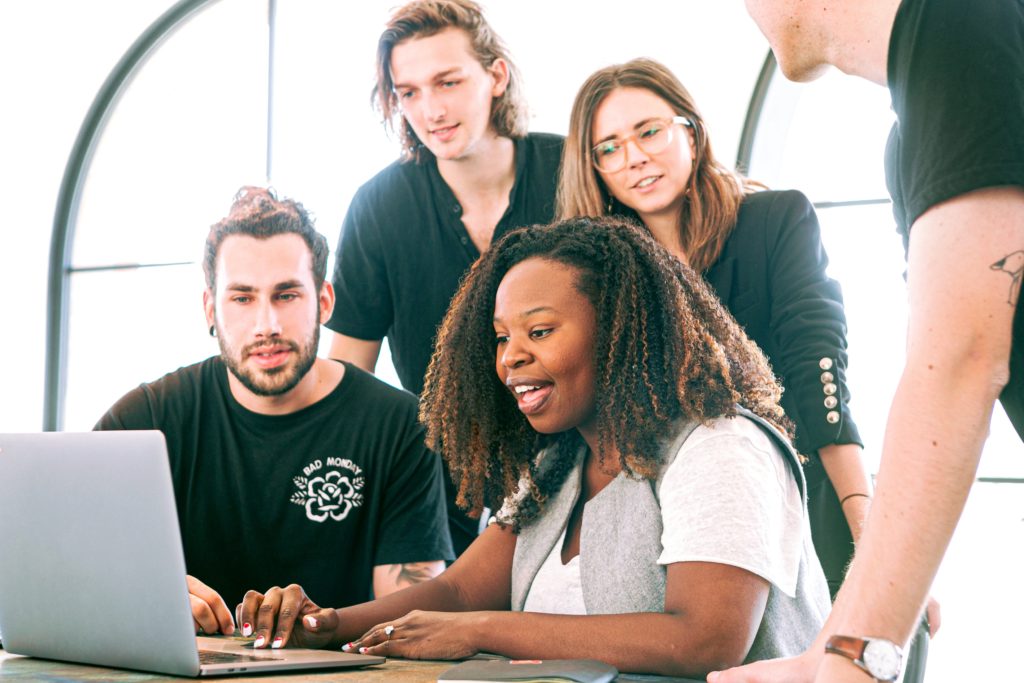
A Nation Divided

How Failing to “Keep Up With the Times” Can Lead to Self-Sabotage
As tensions continue to flare across the nation, it has quickly become apparent that “choosing sides” is a huge part of living in modern America. Whether it be in support of a sports team, political party, or simply the act of encouraging the use of masks during a pandemic, Americans have been trained to side with one of two opposing choices. Republican or Democrat? Pepsi or Dr. Pepper? Marvel or DC? Even with the valid existence of third-party candidates, this tradition of claiming allegiance is part of our culture. It makes it easier to identify the good, the bad, the ugly, and the science behind it can be used to great lengths in digital marketing.
But what about when communities are in crisis?

Pleading the Fifth
When COVID-19 forced the known world to adapt to a “new normal,” this placed everyone under an unprecedented amount of stress and scrutiny. Unemployment rates went through the roof. Small business owners lost their livelihoods. Parents were forced to choose between homeschooling their kids and somehow managing to pay their rent. Add to that the stress of cancelled plans, personal loss, racial division, and a myriad of other plights. These combined circumstances have transformed tensions into a force that could push anyone over the edge.
There was a time when we could choose to remain neutral. To “plead the fifth,” as it were. That time ended with the murder of George Floyd. Not specifically because of him as a person, but because after months in quarantine, years since the founding of Black Lives Matter in 2013, and decades after the last American civil rights movement, millions of minorities and their sympathizers were struck speechless. And while the protests themselves are not as big in some cities as they were during the first month or two, the message itself, that “black lives matter” is not going anywhere anytime soon.
This was, and continues to be, a strange and surreal moment in American history. And just as there are many who align themselves with these protests, there are also quite a lot of people who passionately claim that “all lives matter.” Not everyone who uses these words is specifically racist or unpatriotic, but it is crucial to understand what it means to use them today — and that begins with the popularization of using keywords and popular phrases in the form of “hashtags.”

1. When Words Are Misunderstood
The advent of social media can be an incredible tool for networking in general, but they are also made and run by human beings. Humans are historically flawed, reactive, inherently self-centered, silly, and beautiful creatures. We are at our best when we listen, learn, and make efforts to understand each other. When people turn to social media, it is for the purpose of a) sharing and networking with others and b) to seek validation. This is, coincidentally, another example of A/B choices in action.
When the world was struck still by the coronavirus, it became harder to ignore injustice as they continue to take place in our communities. These unfortunate tragedies aren’t “getting worse.” We’re simply less distracted. This leaves us more able to see when local tragedies make it into our social media. This may not be as pleasant to those of us who have been privileged enough to be able to ignore such things in favor of the endless succession of memes, videos, and family photos that fill our daily feeds — but there comes a time when the sobering grip of reality is necessary.
When the Black Lives Matter organization was founded in 2013, it was in response to the death of Trayvon Martin, a teenage boy murdered by George Zimmerman. When his murderer was acquitted, the hashtag #blacklivesmatter (BLM) spread across the web like wildfire, connecting millions of voices in their grief. That’s how hashtags work: to connect anyone who chooses to follow the link for the purpose of sharing information and uniting in common cause. “Black lives matter” was not used with the intention of making some bold or irrational claim. On the contrary, the founders chose the most basic and fundamental of terms for their cause. They are not saying that black lives are “more important.” It is not a call to eradicate the white people. It is a proclamation, plain and simple, stating with absolute clarity that they “matter.” Period. Still, there were many who did not (and still don’t) comprehend the use of hashtags, which is likely why #alllivesmatter (ALM) was eventually created to contradict the BLM message in 2015.
If the ALM hashtag had trended prior to the founding of BLM, it is possible that the words would still reflect the Buddhist way of thinking, and many still think that is does. This is not the case. Words change. Even Merriam-Webster announced that they would be updating their definition of “racism” as of two months ago. Since 2015, ALM has become a term that is specifically anti-black. It has, unfortunately, become a racist slogan because of this misappropriation, and is now a term used to dismiss or condemn people of color in their struggle for equity in the eyes of the law.

2. Educate Yourself and LISTEN
Now, before you go asking the opinion of your non-white passing friends, please remember WHY you are choosing to ask them in the first place. Do you seek validation or understanding? The urge to be understood is a powerful one, especially during times of crisis.
The time has come to educate yourself. It may sound like a no-brainer, but there really is no way around it. Now, almost three months since death of George Floyd and the still uninvestigated murder of Breonna Taylor, it is not the responsibility of your black or brown friends to educate you on this subject. They have enough on their mind as it is, and most of the information you seek is only a click away.
Strange as it is, this new pandemic has given us the exquisite opportunity to pause. Now is the time to read, reflect, and learn whenever you can make the time to do so. Have you already watched 13? How long has it been since you last refreshed on sociological stratification and how it affects the American people to this day? Have you researched ICE, and what they are doing to indigenous families on our nation’s soil? What about the mass indoctrination of indigenous American children who attended Residential Schools from 1879-1996?
As you look further, you’ll see that there are many critical details that many European Americans haven’t even considered since high school. And that’s assuming such information was ever included in your school’s curriculum. Continued sociological education will not only help you formulate your own opinion, but it will also help you to empathize with the people who make up your community. I could also help you to become a better ally to those who frequent your business as well – assuming this is something that’s important to you.

3. Getting On the Same Page
English is an ever-evolving language. We know that you must care deeply about your business and your community, or else you wouldn’t have stayed to read this article. Now that you know a bit about the origins of BLM and ALM, it is up to you to decide how you wish to make use of that information.
Are you merely hoping to expand your business as a whole? That seems like yet another no-brainer, but are you worried about excluding ALM supporters by making a proclamation of support for the black community? As people who are NOT in charge of these movements, it is our responsibility to be mindful of changes in common rhetoric and ADAPT.
Now before you go purchasing BLM and ALM merchandise in an attempt to please both sides of the argument, let’s take a moment to think about what such a purchase would mean to your community. Money talks, and in a more powerful way than you might think! It’s that people don’t mean what they say, but a small business owner, you simply cannot afford to make the mistake of being a “performative ally.” There is an unprecedented variety of companies and celebrities choosing to proclaim their support on social media. Twitter, Nike, Netflix, and so many more published statements during that time in order to align themselves with the movement. Each company proclaiming that: “To be silent is to be complicit.”
Though this much is true, major companies are often known to be wary of conflict and therefore tend to choose strategies that appeal to the majority of their known client base. Sounds logical, but what about smaller businesses? What about those business owners who show unwavering loyalty to the term All Lives Matter? Do they really understand what they are saying?
4. Taking a Stance
Most Americans may be fluent in English, but this does not mean that we are incapable of misinterpreting one another. Our current social climate is hard proof of that.
Imagine, if you will: Your partner is late for dinner and walks into the room crying. They just got off the phone and their eyes are welling with tears. You ask them what’s wrong and they take a breath before telling you “My father just died.” They are in pain, clearly in need of a little sympathy, and you respond with: “Yeah? Well, all parents die eventually,” while insisting they get over it. Imagine how cruel that would be for your grief-stricken partner to hear.
Neutrality helps the oppressor, never the victim. Silence encourages the tormentor, never the tormented. Sometimes we must interfere. When human lives are endangered, when human dignity is in jeopardy, national borders and sensitivities become irrelevant.”
– Elie Wiesel, a Nobel Laureate
When we plead ignorance and fail to listen to the systemically oppressed within our community, we are inevitably choosing the side of the oppressor. As leaders of our community, we have the privilege of being able to use our platforms to stand up for others. We do it all time time with community fundraisers and charity donations. These latest circumstances are no exception.

Working Together
As business owners, we do not have the privilege of “pleading the fifth” like most citizens choose to do. And while many still struggle in their efforts to keep the peace, real change starts from the ground up. It starts with small, seemingly insignificant actions — like supporting local causes that fight for human rights. Businesses must adapt to the times. You have already done everything you can to comply with COVID-compliant regulations in order to keep your business afloat. Why would you not work just as hard to be socially conscious as well?
Any psychiatrist worth their salt will tell you that words have power. You can show your support through the use of language, ads, donations, and perhaps even new practices that may be implemented in the workplace. This will help people in your community feel heard, which is crucial in a time when so many feel betrayed or otherwise let down by their government. Humans are passionate creatures, and it would be a shame not to use that passion in a way that supports the fight for justice and understanding.
As business owners, we must understand that it is not enough to merely survive through difficult times. Community is everything. Listen. Learn. Be open-minded, and be ready to show compassion whenever possible. Your community will thank you for it.

